Amazon Web Services (AWS) is a suite of cloud computing services that runs on the same infrastructure that Amazon uses for its end-user products, such as Amazon.com. AWS offers over 200 services including computing, storage, database, analytics, application, and deployment services, and it enables businesses of all sizes, startups to enterprises, to build sophisticated applications and websites.
AWS was launched in 2006 by Amazon as a web service offering computing, storage, database, and other functionality to help businesses scale and grow. AWS is a pay-as-you-go service, meaning that businesses only pay for the resources they use. This makes AWS a cost-effective way to build and run applications.
AWS is a global service, with data centers located around the world. This means that businesses can deploy their applications to a region that is close to their users, which can improve performance and reduce latency.
AWS is a secure service, with a number of features to protect data and applications. These features include data encryption, access control, and intrusion detection.
AWS is a reliable service, with a 99.9% uptime SLA. This means that businesses can be confident that their applications will be available when they need them.
AWS is a scalable service, meaning that businesses can easily add or remove resources as needed. This makes AWS a cost-effective way to meet the changing needs of businesses.
AWS is a flexible service, with a wide range of features and functionality. This makes AWS a versatile platform that can be used for a variety of applications.
AWS is a well-documented service, with a comprehensive library of documentation and tutorials. This makes it easy for businesses to get started with AWS and learn how to use its features.
AWS is a supported service, with a team of experts available to help businesses with their AWS deployments. This support can help businesses to troubleshoot problems, optimize their deployments, and get the most out of AWS.
AWS is a popular service, with millions of users around the world. This popularity means that there is a large community of AWS users and developers who can share information and help each other.
AWS is a future-proof service, with a roadmap of new features and functionality. This means that businesses can be confident that AWS will continue to meet their needs as their business grows.
Overall, AWS is a comprehensive, reliable, and scalable cloud computing service that can help businesses of all sizes to build and run applications.
AWS Services
AWS offers a wide range of services, including:
Computing: AWS offers a variety of computing services, including virtual machines, containers, and serverless computing.
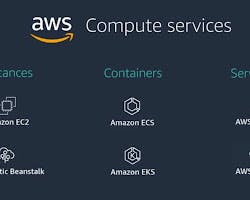
- Storage: AWS offers a variety of storage services, including object storage, block storage, and file storage.
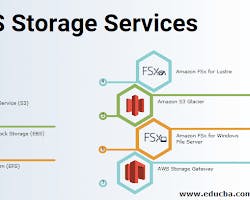
Databases:
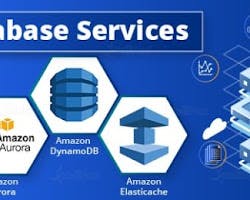
AWS offers a variety of database services, including relational databases, NoSQL databases, and in-memory databases.
- Analytics: AWS offers a variety of analytics services, including data warehousing, data lakes, and machine learning.
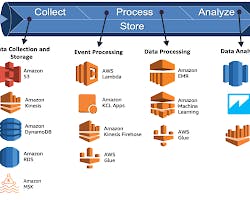
Networking: AWS offers a variety of networking services, including virtual private clouds, load balancing, and content delivery networks.
Mobile: AWS offers a variety of mobile services, including mobile backend as a service (MBaaS), push notifications, and mobile analytics
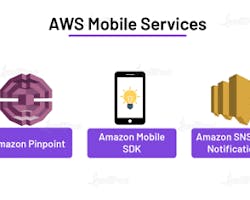
Developer tools: AWS offers a variety of developer tools, including code repositories, continuous integration and continuous delivery (CI/CD) tools, and debugging tools
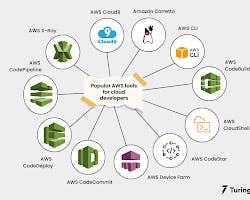
.Management tools: AWS offers a variety of management tools, including monitoring tools, logging tools, and billing tools.
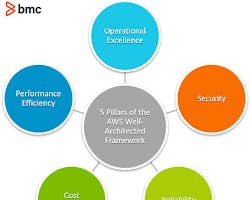
- Enterprise applications: AWS offers a variety of enterprise applications, including customer relationship management (CRM) software, enterprise resource planning (ERP) software, and human capital management (HCM) software.

Here are some of the benefits of using AWS:
Cost-effectiveness: AWS is a pay-as-you-go service, which means that businesses only pay for the resources they use. This can save businesses money compared to traditional on-premises infrastructure.
Scalability: AWS is a scalable service, which means that businesses can easily add or remove resources as needed. This can help businesses to save money by only paying for the resources they use.
Reliability: AWS is a reliable service, with a 99.9% uptime SLA. This means that businesses can be confident that their applications will be available when they need them.
Security: AWS is a secure service, with a number of features to protect data and applications. These features include data encryption, access control, and intrusion detection.
Flexibility: AWS is a flexible service, with a wide range of features and functionality. This makes AWS a versatile platform that can be used for a variety of applications.
Documentation: AWS is a well-documented service, with a comprehensive library of documentation and tutorials. This makes it easy for businesses to get started with AWS and learn how to use its features.
Support: AWS is a supported service, with a team of experts available to help businesses with their AWS deployments. This support can help businesses to troubleshoot problems, optimize their deployments, and get the most out of AWS.
Community: AWS is a popular service, with millions of users around the world. This popularity means that there is a large community of AWS users and developers who can share information and help each other.
Future-proof: AWS is a future-proof service, with a roadmap of new features and functionality. This means that businesses can be confident that AWS will continue to meet their needs as their business grows.
If you are looking for a cloud computing service that is reliable, scalable, and secure, then AWS is a good option for you.

